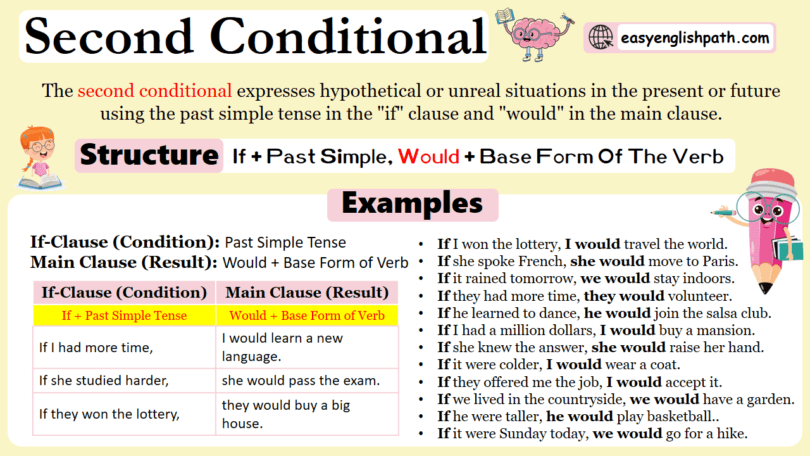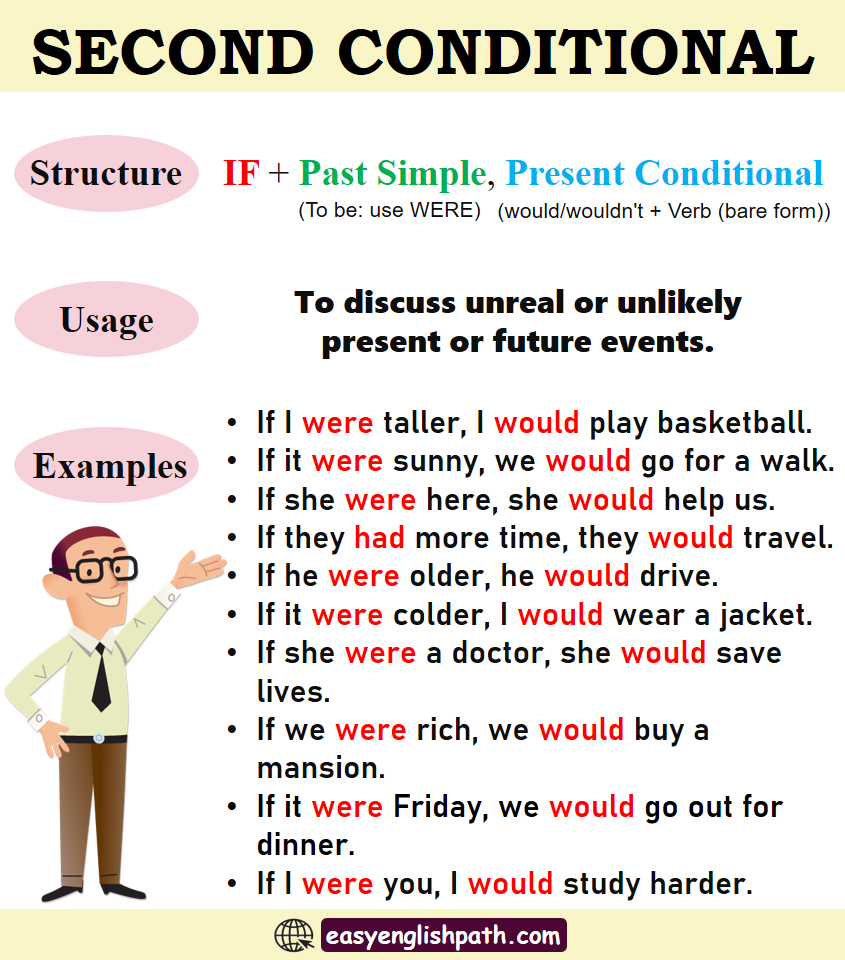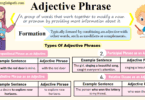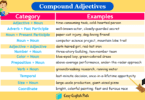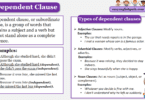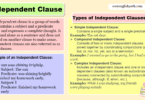The second conditional is very similar to the first conditional. We are still thinking about the future. We are thinking about a particular condition in the future and the result of that condition. But there is not a real possibility that this condition will happen or not. For example, you do not have a lottery ticket. Is it possible to win? No! No lottery ticket, no win! But might be you will buy a lottery ticket in the future. So you just can think about winning in the future, like a dream means it’s not very real, but it’s still possible.
Definition of Second Conditional:
The second conditional is used for talking about unreal situations in the present or in the future.
Second Conditional Use:
The second conditional is talking about what might happen if things were different. It’s all about imagining possibilities that are unlikely or even impossible. it is like to talk about unreal things.
- If I had time, I would go.
- If she studied, she could pass.
- If it rained, we would stay home.
- If they won, they might celebrate.
Second Conditional Usage:
- Imaginary Situations
- Unlikely Scenarios
- Polite Requests or Offers
- Expressing Desires or Wishes
- Conditional Statements
Imaginary Situations:
It is used to imagine what could happen in the future if a certain condition were met.
- If I had wings, I would fly.
- If she won the lottery, she could buy a mansion.
- If he had a time machine, he might visit the past.
Unlikely Scenarios:
It is used to discuss events or actions that are not expected to happen.
- If she met a unicorn, she might take a selfie.
- If they found a treasure map, they could become rich.
- If he discovered a new species, he would be famous.
Polite Requests or Offers:
This situation can be used to make polite requests or offers.
- If I had a pet, I would adopt a cat.
- If she knew magic, she could make wishes come true.
- If he had superpowers, he would be unstoppable.
Expressing Desires or Wishes:
It is used to express desires or wishes that are not likely to come true.
- If I had a pet, I would adopt a cat.
- If she knew magic, she could make wishes come true.
- If he had superpowers, he would be unstoppable.
Conditional Statements:
It is used to make conditional statements about future possibilities.
- If it rained, we would use umbrellas.
- If she missed the bus, she could take a taxi.
- If they finish early, they might leave work.
Difference Between First and Second Conditional:
| Aspect | First Conditional | Second Conditional |
| Time Frame | Present or Future | Present or Future |
| Structure | IF + Present Simple, Will/Can/May/Might | IF + Past Simple, Would/ Could/ Might |
| Usage | Real or possible future events and their likely outcomes | Hypothetical or unreal situations in the present or future |
| Example | If it rains tomorrow, we will stay indoors instead of having a picnic in the park. | If it rained tomorrow, we would stay indoors instead of having a picnic in the park. |
Second Conditional Examples:
- If I were rich, I would travel the world.
- If she had wings, she could fly.
- If it rained, we would stay home.
- If they won, they might celebrate.
- If he knew, he would tell us.
- If she had more time, she could learn.
- If it snowed, we would build a snowman.
- If he were older, he might drive.
- If they had a dog, they would walk it.
- If she spoke French, she could work abroad.
You May Also Like this

